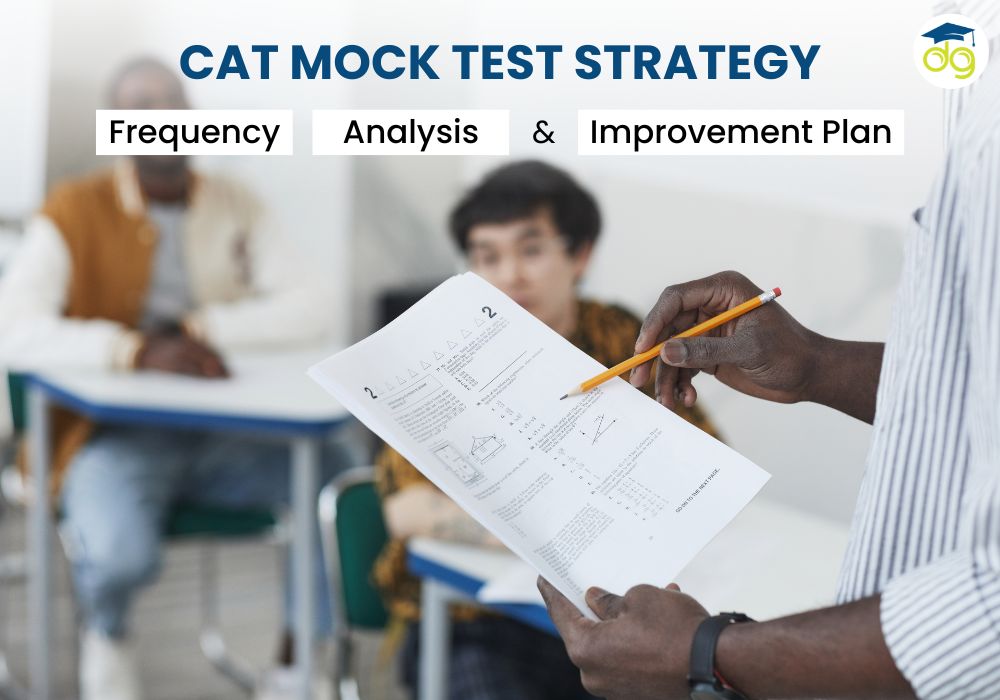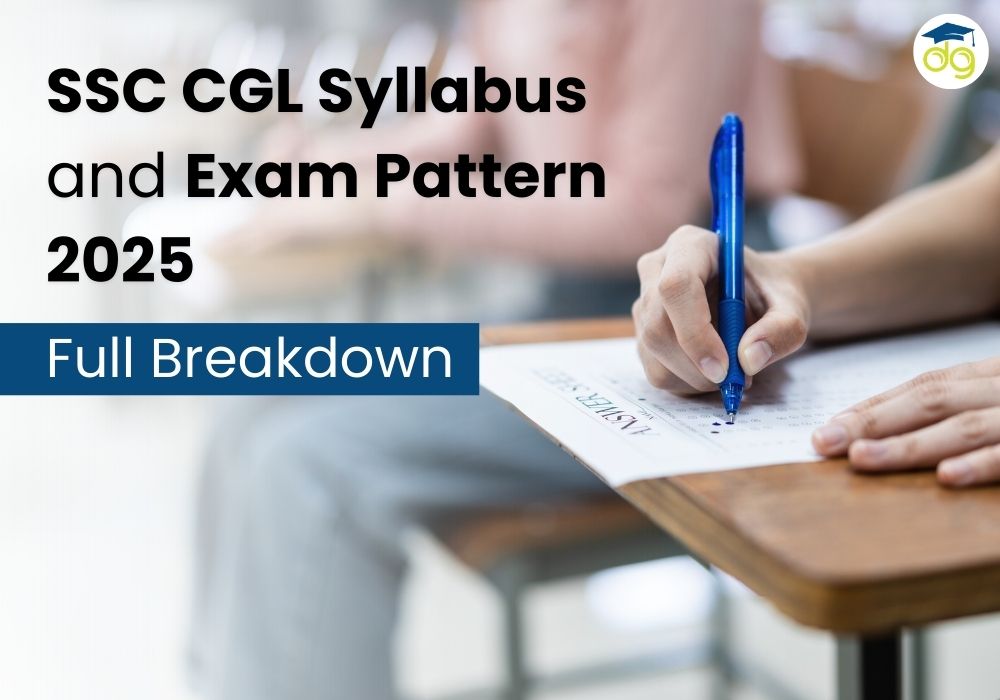How to Improve Accuracy & Speed in JEE Mock Tests 2025
Proven tips to boost speed, accuracy & score higher in JEE mock exams
The Joint Entrance Examination (JEE) is among the most difficult and most competitive examinations in India. While understanding fundamental concepts is essential for the test, the most challenging part lies in using that information with agility and precision when taking the test. For most students, test-taking mocks serve as a crucial bridge between training and the actual test. They show strengths and weaknesses, highlighting weak points and preparing the brain to handle the rigors of the actual examination.
This article will discuss the ways to improve the speed and accuracy of JEE mock exams. Practical techniques any aspirant should consider, as well as ways to manage the number of attempts, without jeopardizing performance.
Why Mock Tests Matter for JEE
The mock tests offer more than practice tests. They are models of the actual examination. Every test brings students closer to their exam experience. The importance of these papers lies in:
- Implicating the pressure of an exam: The act of sitting for three hours simultaneously increases mental endurance.
- Recognizing weak points: The mistakes highlight what chapters or subjects require greater care.
- Test strategies: Students can experiment with different methods and discover what is most effective.
- Improvement tracking: Scores are a regular way to determine improvement.
Benefit of Mock Tests | Why It Matters in JEE |
| Time management | Students are taught how to respond within a limited amount of time. |
| Training for speed | Improves the rate of problem solving |
| Accuracy check | Eliminates silly errors and negative marking |
| Exam simulations that are real | Improves confidence and lowers anxiety |
Common Challenges in JEE Mock Tests
Many students perform well in practice, but struggle when taking mock tests. The most common issues are:
- Speeding through problems and making avoidable mistakes.
- Then you spend too many hours on problems that are difficult to solve.
- Losing marks due to negative marking.
- Failure to amend answers within the closing minutes.
- Nervous under stress.
Acknowledging these challenges will be an initial step towards overcoming these issues.
Strategies to Improve Speed in JEE Mock Tests
Speed refers to the capacity to answer more questions within a shorter period of time, without losing accuracy. However, it is not about rushing without thinking. Instead, it is a matter of planning education. Here are some of the most effective methods:
1. Set Time Benchmarks
Every JEE exam should take less than 2 minutes. For more challenging numerical questions, up to 3-4 minutes is acceptable. Tracking time per question during practice builds natural speed.
2. Attempt Easy Questions First
Each paper is a mixture of moderate, easy, and complex problems. Start with simple ones to build momentum, and allow time to work on more difficult sections.
3. Daily Timed Practice
Examining chapter-wise questions by using the help of a timer aids in building speed slowly. Tests with time-bound requirements should be an integral component of everyday learning.
4. Mental Calculations and Shortcuts
Learning to calculate quickly in physics, math, and chemistry can save a lot of time. Methods for shortcuts, approximations, and formula-based techniques improve the efficiency of problem-solving.
5. Triage System
Separate the questions into three categories:
- Easy - solve immediately.
- Moderate - Note and revisit.
- It isn't easy - to do it as soon as there is time.
This reduces the amount of time wasted and guarantees maximum effort.
Strategies to Improve Accuracy in JEE Mock Tests
The accuracy of the attempt ensures that the efforts are actually successful and fetch points. High speed, but not with accuracy, could ruin the score.
1. Careful Reading of Questions
Many mistakes are caused by misreading or overlooking important information. Reviewing each problem twice before answering reduces the chances of making mistakes.
2. Avoid Blind Guesswork
Negative marking in JEE makes random guessing dangerous. If students are unsure, they should think about alternatives before trying.
3. Strong Conceptual Clarity
Accuracy is contingent on the clarity of concepts. Revision of NCERTs, reference books, and older years' papers provides solid fundamentals in each of the three subjects.
4. Mark and Revisit Strategy
If you are stuck, note the question to be reviewed, then move on. A fresh mind can lead to accurate responses.
5. Revise Formulas and Theorems
A quick recall of formulas helps avoid confusion in the exam. A formula sheet that covers physics, mathematics, and chemistry could be helpful.
Balancing Speed and Accuracy
The biggest challenge is finding a balance between speed and precision. Attempting more tests at a high rate could lead to mistakes, whereas focusing solely on accuracy may result in fewer chances of success. The students must be taught to find the right balance.
Challenge | Result | Solution |
| Too much emphasis on speed | False mistakes and negative marking | Reduce speed a bit, check |
| Focus too much on precision | Low-cost attempt rate | Do not answer lengthy questions first. |
| A balanced approach | Correct efforts | Smart time allocation |
Pro Tips: Apply the 80/20 rule to allocate 80% of your time to scoring questions and 20% to tackling more challenging ones.
How to Analyze JEE Mock Tests
Making a mock test is not the only task. The real benefit of analyzing mock tests is evident.
Methods for analyzing effectively:
- Find the overall score and the accuracy percentage (correct as opposed to tried).
- Identify patterns of repeated mistakes, including those made carelessly, such as weak theories and poor time management.
- Create an error log journal that contains both incorrect and correct answers.
- Try again with the identical mock after a week to assess the improvements.
- Follow your progress through the various chapters of physics, the sciences of chemistry and math.
This ensures that similar mistakes don't happen again during future tests.
Smart Study Habits to Boost Mock Test Performance
Alongside practices, lifestyle and habits are essential in determining your performance. The most effective habits are:
- It is essential to practice time-bound tests frequently.
- Revision of chapter-specific practices is set before taking fresh mocks.
- Keep an up-to-date recipe and a reaction sheet in a handy place.
- At least three full-length mocks per week during the last two months.
- Maintaining consistency is better than studying too much all at once.
Techniques for Mathematics, Physics, and Chemistry
Every subject of JEE needs a unique method.
- Mathematical: Concentrate on mental math using algebra shortcuts and efficiency in solving problems.
- Physics: Create conceptual clarity by developing problems with numbers to avoid formula confusion.
- Chemistry: Review NCERT carefully, learn reactions and memorize them, then use elimination techniques for objective tests.
Best JEE Mock Test Tips
Here are some helpful JEE mock test strategies for all aspirants to follow:
- Practice exam scenarios - use mock exams in the same time slot as you would for the actual exam.
- Make sure you only use a pen and paper. Beware of distractions.
- Make sure you have a water bottle close by and work out your body for three hours in a row.
- Be sure not to discuss your answers immediately after the test. Instead, you should first analyze them individually.
- Practice on old paper to prepare for the real test.
FAQs
1. How to improve accuracy in JEE mock tests?
To improve your score, pay attention to the clarity of concepts, read test questions carefully and attentively, avoid guesswork, and practice error analysis after each test.
2. How to increase speed in JEE preparation?
Timed exercises, mental calculation drills, and learning shortcut strategies increase speed.
3. What are the best techniques for JEE mock tests?
Attempt easy questions first, then mark difficult ones to review, and keep a log of errors and track the accuracy of each test.
4. Should students attempt all questions in JEE mock tests?
No. It's more beneficial to answer only a few questions correctly instead of making random predictions and then lose marks due to negative marks.
5. How often should JEE aspirants take mock tests?
Ideally, 1-2 mocks every week throughout the early stages of exam preparation. Then, 3-4 mocks per week over the final two months.
Conclusion
Improved speed and precision in JEE mock exams requires the mixture of strategy, coherence and a savvy analysis. The goal isn't to answer the highest number of questions but instead about maximising the number of correct tests within the specified time.
Through practicing time-bound tests and revising the concepts, understanding mistakes and keeping the proper balance, every candidate can turn the scores of mock tests into actual test success.
In the end, the JEE mock test's accuracy is the primary aspect that determines the ranking. Through perseverance, determination and the correct methods candidates can make the practice time into the stepping stone to the engineering school they want to attend.
Mock tests can be highly effective; however, the proper instruction can make them more efficient. Through Skoodos Bridge, students receive structured studying resources, expert guidance, and personalized strategies that increase the accuracy of mock tests for JEE and speed.
Categories
Archives
Similar Posts


Cover NCERTs for UPSC in 60 Days: A Strategic Study Plan
by Skoodos Bridge

CAT Mock Test Strategy: Boost Scores with Analysis & Planning
by Skoodos Bridge

JEE Advanced 2026: Top Scoring Topics Based on Past Trends
by Skoodos Bridge


SSC CGL Syllabus & Exam Pattern 2025: Tier-wise Full Breakdown
by Skoodos Bridge

English Preparation for Banking Exams: Grammar, Vocabulary & RC Tips
by Skoodos Bridge

Monthly UPSC Current Affairs PDF: Why It Matters & Where to Find
by Skoodos Bridge

CAT Quant Mistakes: Common Errors & How to Avoid Them in 2025
by Skoodos Bridge


Leave a Comment